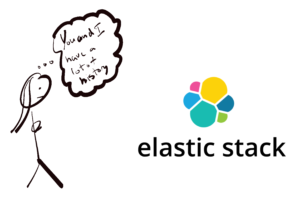At the age of 24, I was part of a DevOps team when I received a last-minute invitation to a Google workshop on Kubernetes. A group of engineers from my company was also attending, but they were seated together while I found myself at a different table with unfamiliar faces. There were approximately 80 men at the workshop, and I counted only two women, including myself. The realization that I was one of the few women present immediately put me on edge. I felt the weight of representing my entire gender and questioning my right to be in that room. When I missed a step in the workshop, the fear of being labeled as an outsider prevented me from asking clarifying questions. Eventually, the pressure to be perfect became too overwhelming, leading me to leave the workshop early. This experience made me reflect on the benefits I could have gained if I had been willing to admit and learn from my mistakes.

In that workshop, I faced a pivotal moment—a single misstep that triggered a wave of self-doubt. As a woman in engineering, the fear of being labeled a token engineer only added to the pressure of proving myself. Seeking help or asking questions felt like a sign of weakness. It became evident that embracing failure was not just about personal growth but also about challenging the biases and stereotypes that hinder women’s progress in the field.
Reflecting on my journey, I have come to realize that some of my greatest lessons leading to success have emerged from failures. At one point, I took on the role of project manager for a migration from Google’s Search API to ElasticSearch. It was my first time working on such a significant project, and I encountered uncertainties and made numerous mistakes along the way, including several production incidents. Despite achieving moderate success with the project, the most valuable lessons I learned were rooted in my failures. The experience provided me with profound insights into databases, rollouts, migrations, and project management. Although the mention of the database ElasticSearch still makes me cringe, I know that I have grown immensely as a result.

In academia and other spheres, a movement has emerged to celebrate failures as crucial learning experiences. Academics like Melanie Stefan and Johannes Haushoffer have advocated for documenting failures alongside successes in what is known as a “failure CV.” This practice nurtures introspection, resilience, and innovation. By embracing our failures, we not only learn from our own experiences but also inspire others to persevere and challenge the status quo.
Failure holds a profound significance, particularly for women in engineering. It presents an opportunity to overcome biases, break barriers, and redefine success. By sharing our stories and embracing failures as stepping stones to personal growth, we empower ourselves and others in the field. Let us foster a culture that celebrates the resilience and determination of women while challenging systemic biases. Together, we can navigate failure, shatter stereotypes, and forge a future where women thrive in engineering and beyond.
